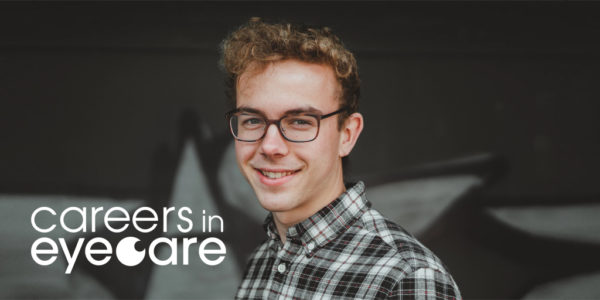Want to work in healthcare? Read on to find out more about healthcare T Levels and finding placements from Youth Friendly Employer ABDO Careers in Eyecare.
T levels are two-year courses for 16 to 19 year olds in England, broadly equivalent to three A levels. Health, science and healthcare science T levels were launched in September 2021, while qualifications in other subjects are still coming on stream.
They were developed with employers, schools and colleges. Health representatives involved in the panels that worked on the health and science courses included optometrists as well as nurses and hospital staff.
Placements
An alternative to A levels and apprenticeships, they are designed to give young people the technical and practical skills for work. T levels combine classroom-based technical learning with an industry placement of at least 315 hours – around 45 days.
The placement can be planned over a short period in week-long blocks, or a day or two at a time over several months. The healthcare science course offers a specialism in optical care services, introduced in September 2022, so colleges will be ready to discuss placements for this year. It’s a shift from traditional work experience to a longer, more structured period in the workplace to develop skills and make a meaningful contribution to the employer.
Industry placements must be based at work – not remotely – so businesses are encouraged to work with local schools and colleges. Nearly 3,000 providers offer the new qualifications.
There are no fees for taking on a student and it’s down to you to decide whether to offer them any payment.
Placements are a shift from traditional work experience to a longer, more structured period in the workplace for young people to develop work skills. They are expected to make a meaningful contribution during their placements, not just do the filing.
Employer responsibilities
To take on a student, employers are asked to work with schools and colleges to decide who they want, draft a role guide and arrange supervision. It’s down to businesses to decide whether to hold formal interviews or CV filtering.
They have to agree legal and policy requirements with the college, such as employer liability insurance and health and safety compliance.
Businesses should:
- Draw up an industry placement agreement, setting out the student’s working hours, development objectives and learning goals.
- Work with the school or college and the line manager to develop a work plan and tasks, joining instructions and induction.
- Arrange training on any relevant systems or processes. Let them experience a variety of tasks, avoiding too much repetition
- Give regular feedback to the student.
- Contribute to an end-of-placement review, outlining the practical skills the student has learned.
- Write an appraisal for the student to use in future.
After completing their T levels, students can go into work, apprenticeships, or higher education.
Find out more
- Specsavers has pledged to offer 100 T level placements
- Search for your local college
- Guide to T levels for employers
Discover Careers In Eyecare with ABDO
 From retail jobs to science roles, early careers in eyecare have a lot to offer.
Careers In Eyecare
From retail jobs to science roles, early careers in eyecare have a lot to offer.
Careers In Eyecare








